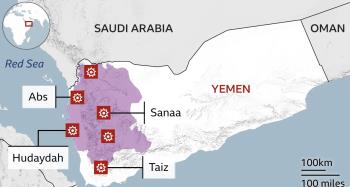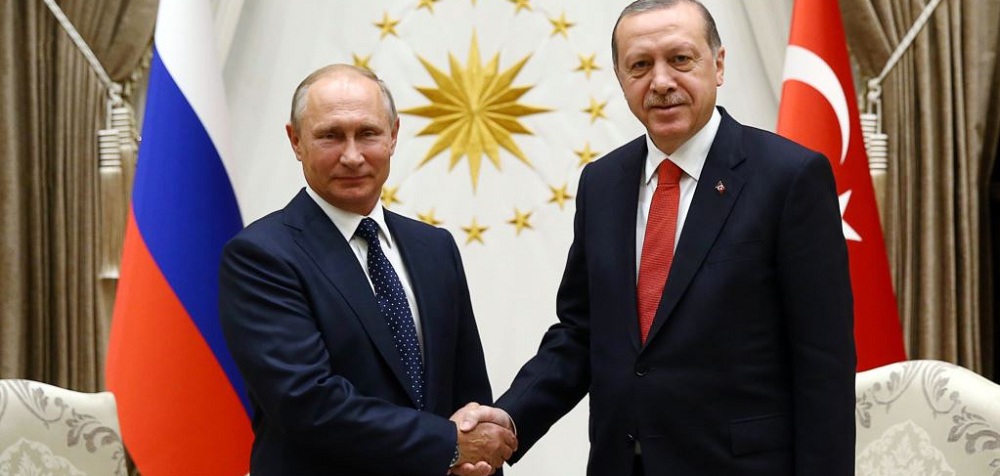Alwaght- As the five-day ceasefire reached between Turkey and the US to halt the Turkish operations and allow the Kurdish groups to pull out of Ras Al-Ain town moves to its end, Turkish President Recept Tayyip Erdogan visits the Russian resort city of Sochi to meet with his Russian counterpart Vladimir Putin to persuade him to agree with his Syria-related demands. The goals and results of this visit are now under the focus of the media and political analysts.
Erdogan seeks to get Putin to his side regarding Syria operation
As Erdogan and Turkish media over the past few days announced, Operation Peace Spring will take a center stage in the negotiations with the Russian leader. Turkey’s Foreign Minister Mevlut Cavusoglu gave away the theme of Erdogan’s visit agenda, saying that the president will discuss with Putin the withdrawal of the Syrian Kurdish forces from Manbij and Kobani.
Turkey wants to make it clear that agreement with the US Vice-president Mike Pence on a five-day ceasefire cannot address Ankara’s concerns. It is likely that with the full retreat of the Kurdish forces from their areas of control, new clashes will spark in the east of Ras Al-Ain. Amid the growing global pressures on the Turkish president and the US Congress steps to add to the sanctions against Turkey, the Turkish leader seek a way out with the help of the Russian president as the most important player of Syrian equations.
Erdogan has come up with the notion that any change in the field equations in Syria originates from the Kremlin. Erdogan knows that without the Russian permission, he cannot turn on their head the equations or continue his operations in areas where the Syrian army is deployed.
Russia’s cold message before Erdogan trip
While Erdogan heads to Sochi with an abundance of hope to get what he wants, before his trip negative signals to his demands have begun to emanate from Moscow.
The Russian officials have sent two messages signaling they are concerned about Erdogan’s operations. Dmitry Peskov, the Russian presidential spokesman and an influential figure in Putin’s team of advisors, in an interview with a Russian television said that the Turkish operation can damage the process to restore security and stability to Syria and make new problems.
“This Turkish action is very worrisome and we are watching the situation,” he was quoted as saying.
Yuri Ushakov, an aide to Putin, said that Turkey’s military actions in Syria’s north should be limited. He continued that Ankara should only respond to the threats not run wild in the use of military power. This operation with its size and quality can deal a blow to return of security and stability to Syria.
Erdogan faces a big, unresolvable challenge
From another aspect, Erdogan’s trip to Russia stands in the confrontation of the big challenge of Moscow and Putin’s strategic vision of the Syrian crisis. Erdogan’s demand from Putin is a green light for a safe zone, 32 kilometers deep and 444 kilometers wide into the northern Syrian territories. But this will set the stage for a collision between Moscow-Tehran-Damascus camp with Ankara.
There are two essential issues here: One, Turkey intends to ask Russia to remove the Syrian forces from Kobani, whose borders and administration are transferred to the central government after the Kurdish forces’ retreat. Two, in the Russian viewpoint, the Turkish army entry and occupation of the northern regions will represent an egregious violation of the Syrian national sovereignty and territorial integrity deeply in violation of the principles of the international law.
In such a situation, Erdogan can hardly obtain any remarkable outcome from his Russia visit. At best, the two leaders will discuss a deal on Idlib, the last major stronghold of terrorists in Syria. But the problem is that in case of the massive presence of the Turkish military in the east of the Euphrates River and possible control of the oilfields in Deir ez-Zor province, Idlib case will be taken out of agenda. So, Putin’s approval of the Syrian forces’ withdrawal from the two strategic towns in northern Syria is highly unlikely.
Russia concentrates on Adana agreement
In the present conditions, Russia, while appreciating the Turkish concerns in Syria, emphasizes on the Syrian territorial integrity and the restoration of the government’s control over the whole of the country’s territories. Holding friendly relations with both Syria and Turkey, the Russian officials highlight dialogue as the only way to solve the differences between Damascus and Ankara.
Russia’s Foreign Minister Sergey Lavrov’s recent comments indicate this Russian policy. In recent comments, Lavrov said Russia understands the Turkish worries about the security of its borders and at the same time insists that these worries should be addressed within the framework of the Adana agreement, signed between Syria and Turkey in 1998. Under the agreement, Syria promised not to support the Kurdish militias taking shelter in its territories and launching attacks on the Turkish territories.
The considerable point is that if the deal is implemented, Damascus will necessarily have to send its forces on the borders with Turkey to prevent terrorists from penetration of the Turkish territory. Thus, should the Syria army be deployed, there would be no need for the Turkish army to launch cross-border strikes against the Kurdish forces it accuses of affiliation with the banned Kurdistan Workers Party (PKK).



























